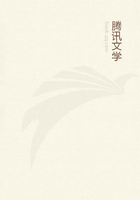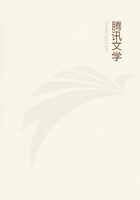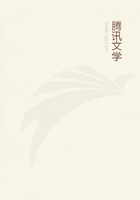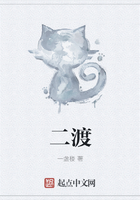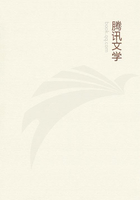There is a particular characteristic in the nature of the human mind, which is somewhat difficult to be explained.
Man is a being of a rational and an irrational nature.
It has often been said that we have two souls. Araspes, in the Cyropedia, adopts this language to explain his inconsistency, and desertion of principle and honour. The two souls of man, according to this hypothesis, are, first, animal, and, secondly, intellectual.
But I am not going into any thing of this slight and every-day character.
Man is a rational being. It is by this particular that he is eminently distinguished from the brute creation. He collects premises and deduces conclusions. He enters into systems of thinking, and combines systems of action, which he pursues from day to day, and from year to year. It is by this feature in his constitution that he becomes emphatically the subject of history, of poetry and fiction. It is by this that he is raised above the other inhabitants of the globe of earth, and that the individuals of our race are made the partners of "gods, and men like gods."
But our nature, beside this, has another section. We start occasionally ten thousand miles awry. We resign the sceptre of reason, and the high dignity that belongs to us as beings of a superior species; and, without authority derived to us from any system of thinking, even without the scheme of gratifying any vehement and uncontrolable passion, we are impelled to do, or at least feel ourselves excited to do, something disordinate and strange. It seems as if we had a spring within us, that found the perpetual restraint of being wise and sober insupportable.
We long to be something, or to do something, sudden and unexpected, to throw the furniture of our apartment out at window, or, when we are leaving a place of worship, in which perhaps the most solemn feelings of our nature have been excited, to push the grave person that is just before us, from the top of the stairs to the bottom. A thousand absurdities, wild and extravagant vagaries, come into our heads, and we are only restrained from perpetrating them by the fear, that we may be subjected to the treatment appropriated to the insane, or may perhaps be made amenable to the criminal laws of our country.
A story occurs to me, which I learned from the late Dr. Parr at Hatton, that may not unhappily illustrate the point I am endeavouring to explain.
Dr. Samuel Clarke, rector of St. James's, Westminster, the especial friend of Sir Isaac Newton, the distinguished editor of the poems of Homer, and author of the Demonstration of the Being and Attributes of God, was one day summoned from his study, to receive two visitors in the parlour. When he came downstairs, and entered the room, he saw a foreigner, who by his air seemed to be a person of distinction, a professor perhaps of some university on the continent; and an alderman of London, a relation of the doctor, who had come to introduce the foreigner.
The alderman, a man of uncultivated mind and manners, and whom the doctor had been accustomed to see in sordid attire, surrounded with the incumbrances of his trade, was decked out for the occasion in a full-dress suit, with a wig of majestic and voluminous structure. Clarke was, as it appears, so much struck with the whimsical nature of this unexpected metamorphosis, and the extraordinary solemnity of his kinsman's demeanour, as to have felt impelled, almost immediately upon entering the room, to snatch the wig from the alderman's head, and throw it against the ceiling: after which this eminent person immediately escaped, and retired to his own apartment. I was informed from the same authority, that Clarke, after exhausting his intellectual faculties by long and intense study, would not unfrequently quit his seat, leap upon the table, and place himself cross-legged like a tailor, being prompted, by these antagonist sallies, to relieve himself from the effect of the too severe strain he had previously put upon his intellectual powers.
But the deviousness and aberration of our human faculties frequently amount to something considerably more serious than this.
I will put a case.
I will suppose myself and another human being together, in some spot secure from the intrusion of spectators. A musket is conveniently at hand. It is already loaded. I say to my companion, "I will place myself before you; I will stand motionless: take up that musket, and shoot me through the heart." I want to know what passes in the mind of the man to whom these words are addressed.
I say, that one of the thoughts that will occur to many of the persons who should be so invited, will be, "Shall I take him at his word?"
There are two things that restrain us from acts of violence and crime. The first is, the laws of morality. The second is, the construction that will be put upon our actions by our fellow-creatures, and the treatment we shall receive from them.--I put out of the question here any particular value I may entertain for my challenger, or any degree of friendship and attachment I may feel for him.
The laws of morality (setting aside the consideration of any documents of religion or otherwise I may have imbibed from my parents and instructors) are matured within us by experience. In proportion as I am rendered familiar with my fellow-creatures, or with society at large, I come to feel the ties which bind men to each other, and the wisdom and necessity of governing my conduct by inexorable rules. We are thus further and further removed from unexpected sallies of the mind, and the danger of suddenly starting away into acts not previously reflected on and considered.
With respect to the censure and retaliation of other men on my proceeding, these, by the terms of my supposition, are left out of the question.
It may be taken for granted, that no man but a madman, would in the case I have stated take the challenger at his word. But what I want to ascertain is, why the bare thought of doing so takes a momentary hold of the mind of the person addressed?


